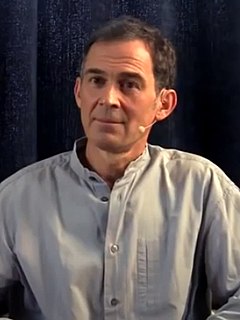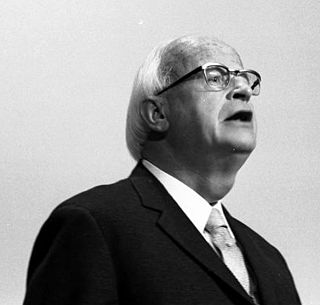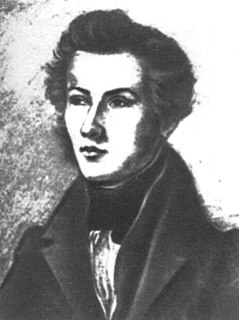A Quote by Thomas Aquinas
There is, therefore, a more perfect intellectual life in the angels. In them the intellect does not proceed to self-knowledge from anything exterior, but knows itself through itself.
Related Quotes
The process of inner self-examination brings about a knowledge that is as rigorous and supported by evidence as anything science has to offer. At the same time, this point of view redefines faith as a knowledge that is attained not only by intellectual means, but also through the rigorous development of the emotional side of the human psyche. Such emotional knowledge is unknown to the isolated intellect and has therefore been mistakenly labeled as "irrational."
The heart-throb for the welfare of humanity therefore passes into the ravings of an insane self-conceit, into the fury of consciousness to preserve itself from destruction; and it does this by expelling from itself the perversion which it is itself, and by striving to look on it and express it as something else.
How infinitely happier and more grateful is the whole personality or spirit when it finds something nourishing in art or writing or thinking, than the mere mind or intellect is: the kinship you celebrate in these personalities is your own dismembered Orpheus stumbling across another fine organ to rejoin to itself. I put it this way: aristic psyche loves itself enough to chasten itself, to put itself through boot camp for the sake of being competent for life, alive to life.
...God does not possess a private knowledge of Himself and a separate knowledge of all the creatures in common. The universal Cause, by knowing Itself, can hardly be ignorant of the things which proceed from It and of which It is the source. This, then, is how God knows all things, not by understanding things, but by understanding Himself.
Your Self, Aware Presence, knows no resistance to any appearance and, as such, is happiness itself; like the empty space of a room it cannot be disturbed and is, therefore, peace itself; like this page, it is intimately one with whatever appears on it and is thus love itself; and like water that is not affected by the shape of a wave, it is pure freedom. Causeless joy, imperturbable peace, love that knows no opposite and freedom at the heart of all experience....this is your ever-present nature under all circumstances.
It is also possible to say precisely why. Truth seduces us very easily into a kind of joy of possession: I have comprehended this and that, learned it, understood it. Knowledge is power. I am therefore more than the other man who does not know this and that. I have greater possibilities and also greater temptations. Anyone who deals with truth - as we theologians certainly do - succumbs all too easily to the psychology of the possessor. But love is the opposite of the will to possess. It is self-giving. It boasteth not itself, but humbleth itself.
Always remember deep in your heart that all is well and everything is unfolding as it should. There are no mistakes anywhere, at any time. What appears to be wrong is simply your own false imagination. That's all. But we live in a universe of Brahman, of Absolute Reality, self -contained Consciousness, where there's perfection, perfect life, perfect bliss, perfect being. That perfection knows nothing about wrong and right, good and bad, happy and sad. It knows only itself as Perfection. And you are That.
Therefore, criticism has to direct itself against itself, and against the mysterious Substance in which it has up to now hid itself. In this way criticism must resolve things such that the development of this Substance drives itself forward to the Universality and Certainty of the Idea of its actual existence, the Eternal Self-consciousness.
Paul indeed wanted to reveal the unknown God to the philosophers and then affirms of Him, that no human intellect can conceive Him. Therefore, God is revealed therein, that one knows that every intellect is too small to make itself a figuration or concept of Him. However, he names him God, or in Greek, theos.
The knowledge we now consider knowledge proves itself in action. What we now mean by knowledge is information effective in action, information focused on results. Results are outside the person, in society and economy, or in the advancement of knowledge itself. To accomplish anything this knowledge has to be highly specialized.






































